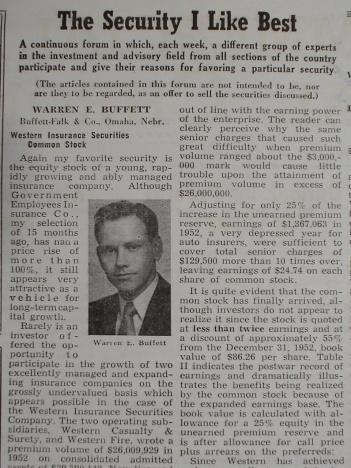“American Express at the time was the only major U.S. public company to be capitalized as a joint stock company rather than a limited liability company. This meant its shareholders could be assessed for deficiencies in capital. ‘So every trust department in the U.S. panicked,’ recalls Buffett. ‘I remember the Continental Bank held over 5 percent of the company, and all of a sudden not only do they see that the trust accounts were going to have stock worth zero, but they could get assessed. The stock just poured out, of course, and the market got slightly inefficient for a short period of time.’”
-The Snowball: Warren Buffett and the Business of Life
The main issue that confronts investment academics, and particularly confronts you as investors, is the question: To what extent are stock prices efficient? My views on this subject are pretty well known to all of you; I am not going to elaborate them. I believe that the endeavor to outperform unmanaged stock indexes is not on the whole a satisfactory activity.
One premise of efficient market theory is suspect, however, viz., that market participants always buy and sell on the basis of economic value. The recent convulsion in stock prices has led to margin calls of notable size in the following securities:
XL Capital
Williams-Sonoma
Viacom
CBS
Tesoro
Macerich
Chesapeake Energy
P.S. I intend to update my essay on corporate earning power and market valuation as new data arise. In any event it is quite obvious that the current level of stock prices is more attractive than it has been for some time. While the arbitrage situations have performed well as projected, I believe that a shift in investment policy may be due.







